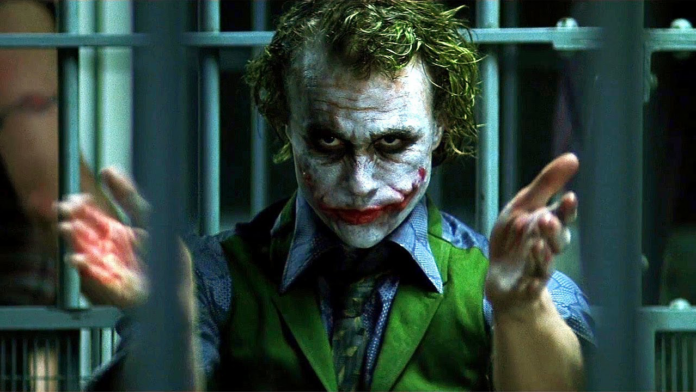This post may contain affiliate links, which earn us commission. Learn more.
Comic book movies have dramatically reshaped some of our favorite villains, often surpassing their comic counterparts in depth, charisma, and sheer menace. While the source material laid the foundation, the big screen has offered a broader emotional canvas, powerful performances, and refined storytelling that elevated these villains into cultural icons. Here are seven comic book movie villains whose cinematic portrayals truly outshined their original comic versions and redefined what it means to be a bad guy.
1. Heath Ledger’s Joker (The Dark Knight)
Ledger transformed the Joker from a flamboyant comic-book trickster into a chillingly unpredictable embodiment of chaos. His Oscar-winning performance captured not just madness, but a terrifying sense of purpose—a villain who didn’t want money or power, but simply wanted to upend the system. With haunting mannerisms, an unnerving voice, and a constant aura of danger, Ledger created a Joker that has become the benchmark for villainy. His portrayal was so powerful it has influenced even the comic books, with newer depictions of the character leaning into his anarchic psychology.
2. Killmonger (Black Panther)
In the comics, Erik Killmonger is a fierce and capable adversary, but not particularly memorable. Michael B. Jordan’s take elevated him into one of the most emotionally resonant villains in the MCU. His pain was rooted in systemic oppression, abandonment, and a hunger for justice. His goals were understandable, even noble at times, making his villainy all the more tragic. That emotional complexity made him not just a foe to T’Challa, but a mirror reflecting uncomfortable truths about the world, race, and power. Killmonger didn’t just want a throne—he wanted to change the world that wronged him.
3. Doctor Octopus (Spider-Man 2)
Alfred Molina’s portrayal of Otto Octavius gave audiences a sympathetic, tragic figure—a brilliant scientist corrupted by his own invention. Unlike his comic book counterpart, who often veers into mad scientist territory, Molina’s Doc Ock was a mentor, a man with dreams, whose loss and grief made his fall into villainy all the more heartbreaking. The scenes where his inner conflict plays out, especially in his redemption at the end, added emotional gravitas that comics rarely explored. His dynamic with Peter Parker also added a personal dimension that enriched the overall narrative.
4. Thanos (MCU)
In the comics, Thanos is a nihilistic megalomaniac obsessed with the physical embodiment of Death. In the Marvel Cinematic Universe, Josh Brolin’s Thanos is a misguided ideologue who genuinely believes his actions will save the universe. That shift transformed him from a stereotypical cosmic tyrant into a complex figure who evokes both fear and a bizarre form of respect. His scenes in “Infinity War” and “Endgame” are filled with gravitas, philosophy, and chilling determination. The sheer conviction in his ideology makes him terrifying because he truly believes he is the hero of his own story.
5. Loki (MCU)
Tom Hiddleston redefined Loki for a generation, taking a mischievous trickster and turning him into one of the MCU’s most beloved—and complicated—characters. Initially a villain in “Thor” and “The Avengers,” Loki’s arc became one of redemption, identity, and family. With his charisma, dry wit, and emotional vulnerability, Loki became far more than just Thor’s jealous brother. The layered writing and Hiddleston’s performance added dimensions that the comic version rarely explored. His eventual evolution into an antihero, and even a multiverse-hopping protagonist, shows just how far the cinematic version has come.
6. Magneto (X-Men franchise)
The comics always portrayed Magneto as a morally grey character, but the films brought that ambiguity to the forefront. Both Ian McKellen and Michael Fassbender brought unique strengths to the role, portraying Magneto with a blend of dignity, trauma, and fierce conviction. Whether it’s McKellen’s weary gravitas or Fassbender’s emotional volatility, cinematic Magneto feels like a man shaped by unbearable loss—particularly the Holocaust and later, the loss of his family. These performances made him more than a mutant supremacist; they made him a tragic figure fighting for his people in a world that has shown him nothing but cruelty.
7. Vulture (Spider-Man: Homecoming)
In the comics, Adrian Toomes is a somewhat generic villain with a flight suit and a grudge. In the MCU, Michael Keaton gave him an entirely new life as a relatable working-class dad pushed to extremes. The character’s motivations—rooted in economic injustice and the desire to protect his family—made him feel grounded and refreshingly human. The car scene where he confronts Peter Parker is one of the most suspenseful in the MCU, with Keaton radiating controlled menace. This version of the Vulture isn’t just a thief; he’s a man trying to survive in a world rigged against him.
These cinematic versions of comic villains didn’t just enhance their characters—they reimagined them. Through sharp writing, nuanced performances, and powerful themes, these portrayals set new benchmarks in storytelling and character development, often leaving their comic book origins in the dust. In many cases, these villains became the emotional and philosophical core of their respective films, proving that sometimes, it’s good to be bad—especially on the big screen.
What did we miss? Do you agree with our list? Let us know in the comments!




